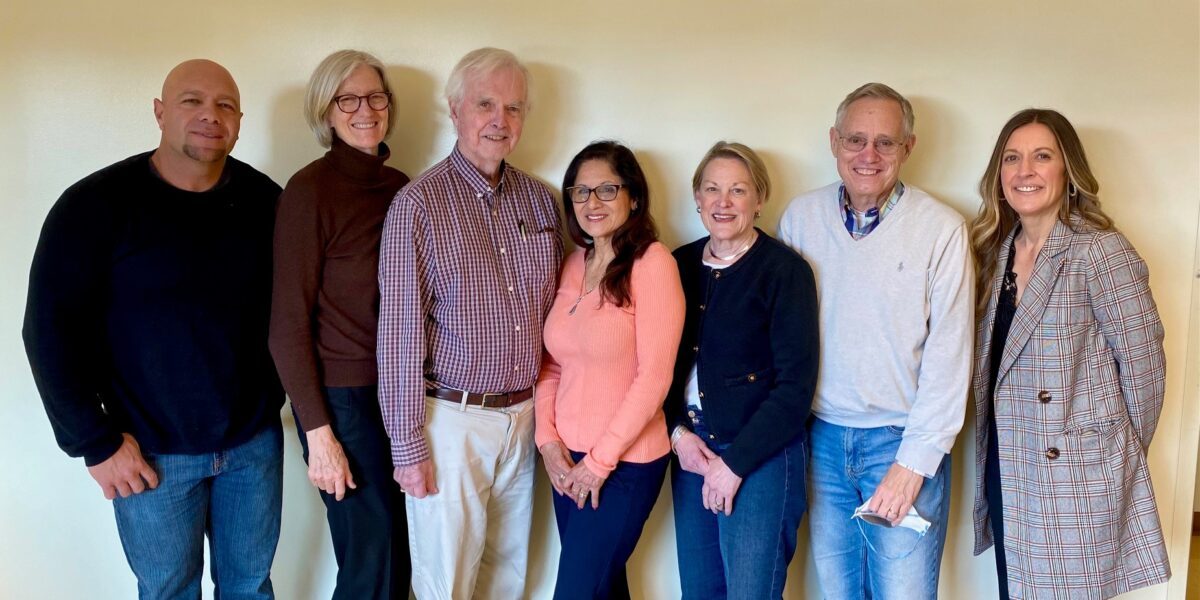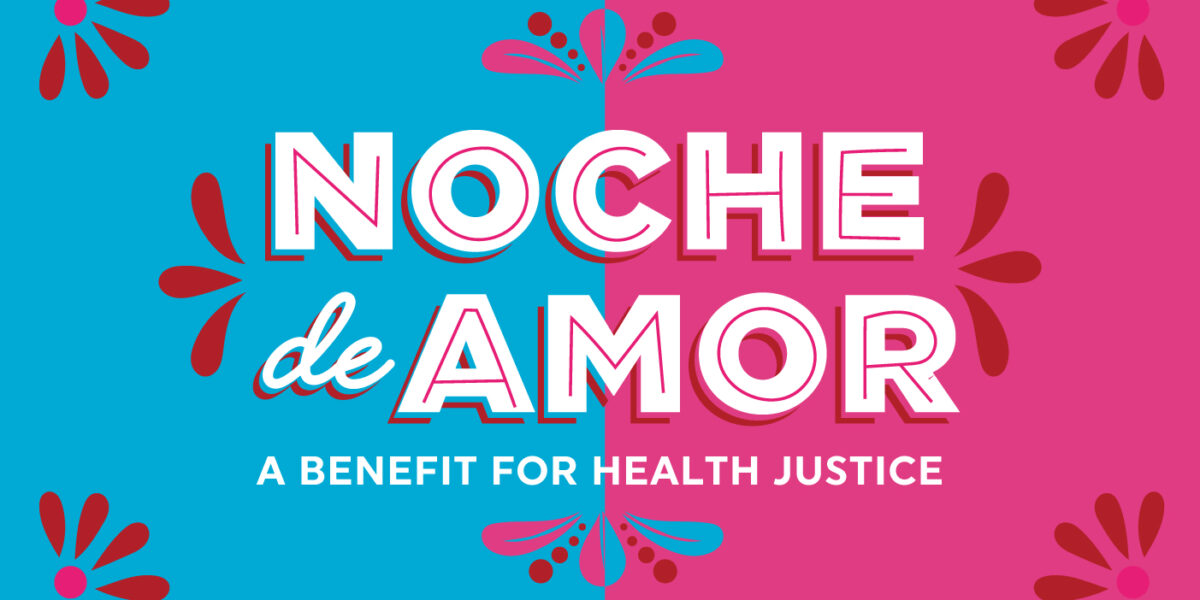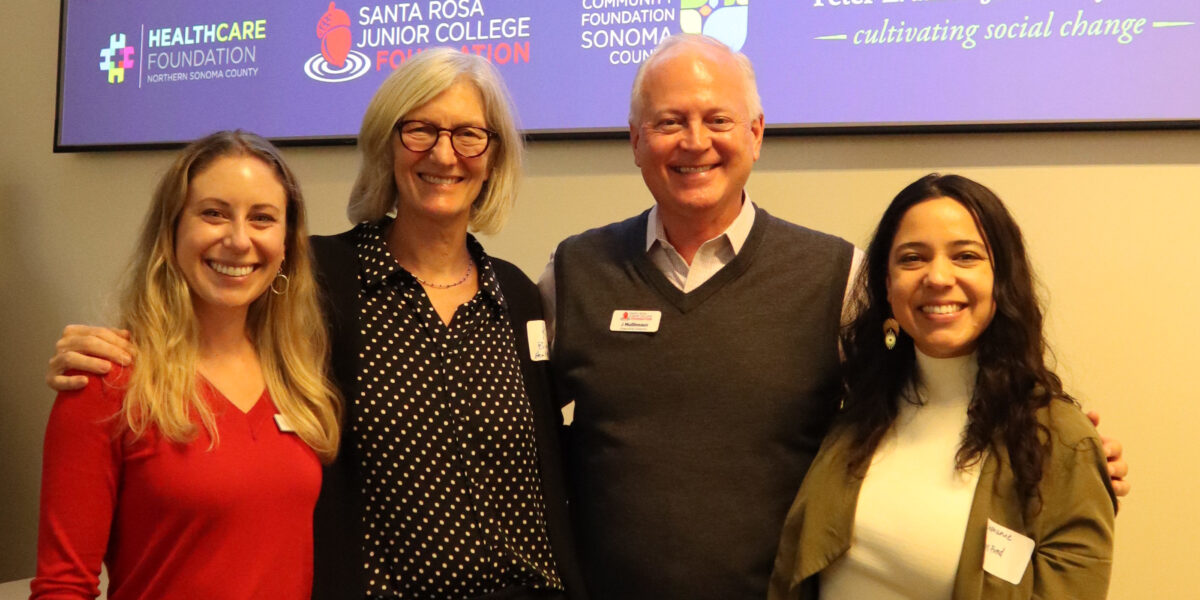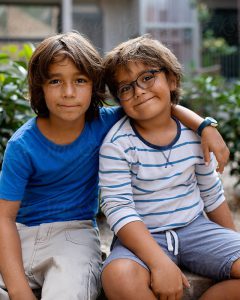
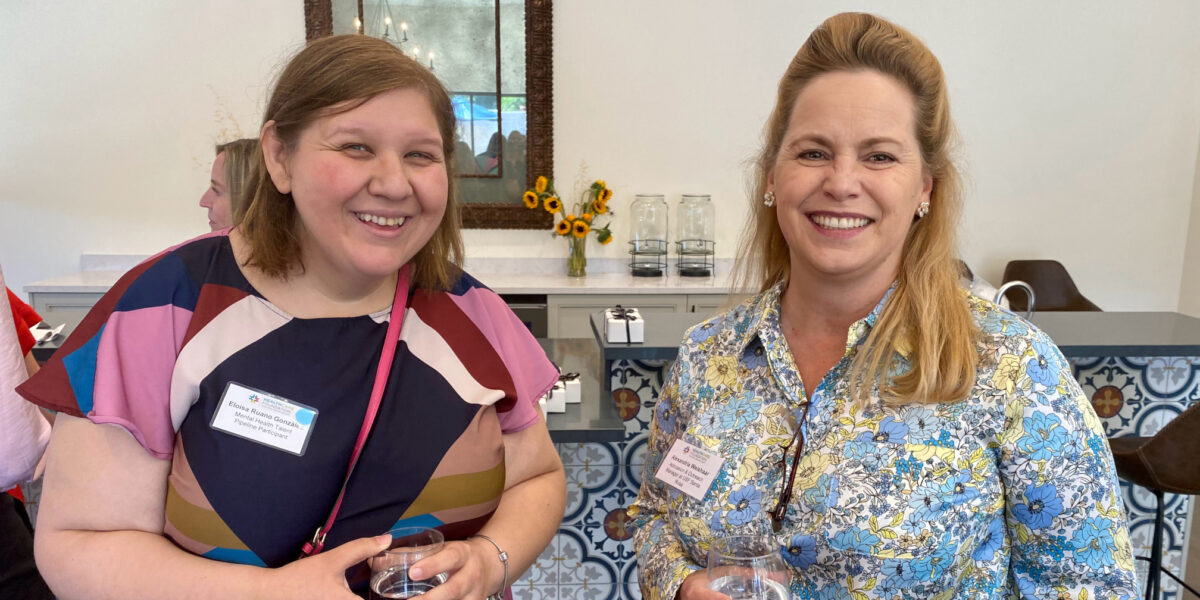
Spotlight: Mental Health Talent Grantee Eloísa Masror
Eloísa Masror knows firsthand the strength and resilience of her Latinx community.

Eloísa Masror knows firsthand the strength and resilience of her Latinx community. She also knows the challenges facing immigrants and their families, and the toll these can take on the wellbeing of an individual, a family and a community.
“My parents were both immigrants,” shares Eloísa. “I grew up in Southern California in a predominantly low-income neighborhood of mostly immigrants, a mix of Latino and Asian communities. I understand the constant stressors immigrants are living with on a day-to-day basis, and have experienced that on a personal level, too.”
Over 15 years as a reporter in Santa Rosa, Eloísa heard and shared many stories from the Latinx community. Gradually, she yearned to do more to address the need she saw around her, especially for culturally competent mental health services.
“When I first moved here, I was looking for a bilingual therapist, someone who could relate to me on a different level, and I couldn’t find one,” she says. “There’s a need there, and it has only gotten greater because we had the fires and now the pandemic. Now you have this compounded effect on people emotionally.”
In 2017, Eloísa applied for a graduate degree in counseling psychology at the University of San Francisco (USF). She was accepted but, unfortunately, found the cost prohibitive.
“I ended up turning it down,” she explains. “Financially, I just couldn’t make it work. I’d just had a baby. So, I went back to reporting—which I enjoyed doing; I was just looking for something else to make a greater impact.”
That year, Eloísa covered the 2017 wildfires for Santa Rosa’s Press Democrat as part of a team whose collective efforts earned the paper a Pulitzer Prize.
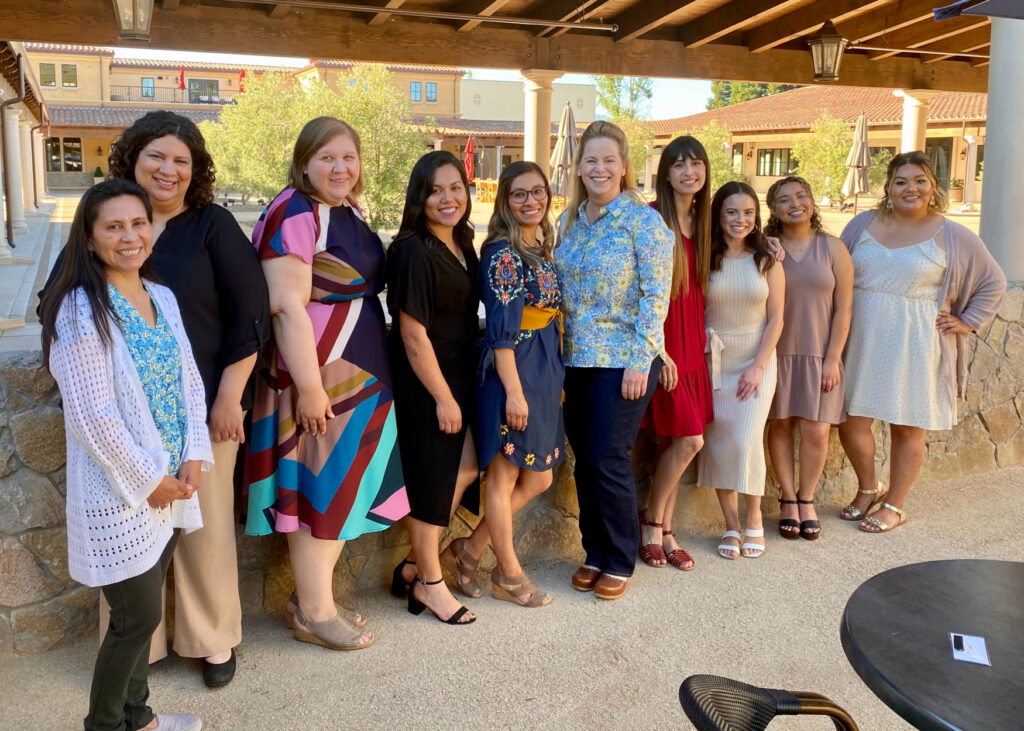
“I was hanging out in the shelters and figuring out what was happening to people in those first days of the fires,” she recalls, “just seeing the level of fear. People were afraid because they saw the National Guard parked out in front of shelters. Initially the information was not being given in Spanish, so that created another level of confusion. For a lot of families, it was a very scary, traumatic experience.”
Meanwhile, the resources designed and mobilized for such families weren’t getting to them.
“The more I reported on these issues,” recalls Eloísa, “the more I realized that the county had implemented some services and support groups, and nobody would know about them.”
The experience only reinforced her desire to directly serve the people in her community.
“I wanted to help people heal. Just listening to someone’s story and reflecting it back to them—that is often empowering and healing. But I wanted to also provide the services to help them take charge of their own healing, including those intergenerational issues linked to traumas that get passed down from generation to generation.”
At last, she was able to enroll in the USF program, now with the support of a scholarship from the Healthcare Foundation’s Mental Health Talent Pipeline Project. Today, Eloísa is completing her master’s in Marriage and Family Therapy (MFT). In August, she’ll start a traineeship with YWCA Sonoma County helping survivors of domestic and intimate partner violence.
“It’s been life changing,” says Eloísa of her new beginnings as a therapist. “I hope that I can be a resource to families here.”
“I also want to encourage others,” she adds. “I am the first person in my family to go to college. It’s scary to be the first one. It takes a lot of courage. I’m hoping I can inspire and be a resource for people wanting to pursue this work and trying to figure out how to do it.”
As far as new beginnings go, Eloisa and her Mental Health Talent Pipeline colleagues are already inspiring others to pursue the mental health field: this year, more bilingual, bicultural students than ever applied to the USF Santa Rosa MFT program.

Related News + Stories
Invest in Our Community
Your support is vital to our collective vision of eliminating health inequities in northern Sonoma County.
Donate
